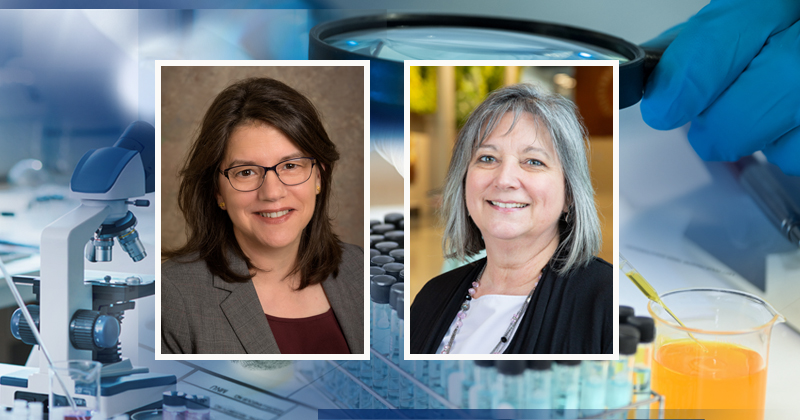
Teens will get a taste of high-tech crimefighting
at 5-day pre-college campus experience
For most high school students, summer vacation typically isn’t a time for analyzing wisps of DNA evidence, dusting for latent fingerprints or running toxicology reports.
That’s set to change for some teens this summer, when the University of Delaware Division of Professional and Continuing Studies (UD PCS) launches its Forensic Science Pre-College Summer Program on the Newark campus, June 24-28.
Geared to foster deeper appreciation for the cutting-edge biotechnology used in many crime investigations — and to possibly lead to a related career — the non-residential, five-day program for high school students features instruction by leading UD professors, real-world investigators and even the state’s top forensic toxicologist.
Students will visit the state’s crime labs and ultimately earn a personalized reference letter for their college application portfolio, along with a digital badge to display on social media and online profiles.
“I know at that age I would have loved the opportunity to visit a real crime lab,” said Jessica Smith, a UD alumna and the current chief forensic toxicologist at the state Division of Forensic Science. “This is a great way for high school students to get some real momentum on a science career.”
Smith will be among the program’s instructors, along with faculty members from UD’s popular minor in forensic science. Anthony C. DiNardo, a retired Delaware police officer who oversees the state’s Automated Fingerprint Identification System (AFIS), will lead the section on fingerprint science. Field trips are planned to Delaware’s Division of Forensic Science, the Delaware State Police Forensics Firearms Unit, the Delaware State Bureau of Identification and the state police Troop 3 Evidence Unit.
“We want to make science fun and rewarding with this,” said Esther Biswas-Fiss, professor and chair of UD’s Department of Medical and Molecular Sciences and an expert in genetics and DNA sequencing. “But it’s also something that can enhance their college portfolios.”
A first-generation college graduate, Biswas-Fiss has worked for years to broaden access and interest in science careers. She has also seen the impact of giving students hands-on experiences early on. Leveraging their years of experience in the field, the summer program’s instructors will share actual case studies, adding a solid foundation of “real-world” impact to the science.
That science will take place in UD’s top-tier labs, where the students will be challenged to use DNA testing to distinguish between a fictional suspect and victim, then learn how to do blood typing and toxicology tests (using synthetic samples).
“The program is a real nice mix of techniques,” said Heather Walters, director of UD’s forensic science minor and an instructor with the Department of Medical and Molecular Sciences. “They will get to do all the different things you can do in a criminal science investigation.”
Interest in the field has grown along with the popularity of the many televised “CSI” dramas, a phenomenon that has also partly driven the success of UD’s forensic science minor, which now counts over 200 active students. “They’re extremely popular, and growing,” Walters said of the courses that make up the minor.
At the end of the weeklong program, students will present the “court-ready” findings of their lab work and discover whether they managed to “solve” a hypothetical case. This capstone work will be reviewed by a panel from Delaware’s Division of Forensic Science and the Delaware State Police.
Ultimately, the program’s instructors also want the students to leave with a better idea of the potential pathways ahead of them, should they choose forensic science or some other lab-based career.
The impact of such experiences on younger students can be substantial, as Smith discovered when she was an undergraduate in biochemistry at UD some 20 years ago.
“I didn’t know what I really wanted to do with my degree at the time,” she said. “I always liked to solve things and investigate and find answers. But I didn’t want to be a police officer arresting people. I wanted to work behind the scenes. It wasn’t until we had a guest speaker come from the FBI that I saw the possibilities. That really solidified my decision that I wanted to pursue forensic science.”
The Forensic Science Pre-College Summer Program is open to any rising high school sophomore, junior or senior with an interest in forensic science or any related analytical science. To participate, students must have credit for at least one high school level biology or general science course. For more information, visit www.pcs.udel.edu/forensic-science.

